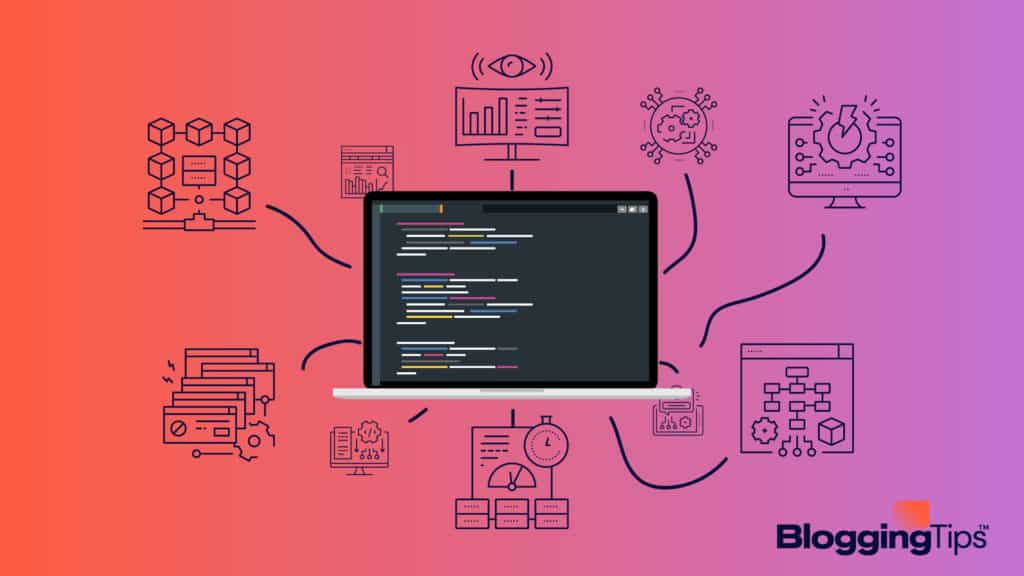As your business grows, you’ll likely find that you need to start integrating different software programs to help automate various processes.
This can be a daunting task for a beginner, but fortunately there are plenty of great integrations out there that are easy to use.
In this article, we’ll take a look at some of the best software integrations for small businesses and explain how they can help streamline your operations.
We’ll also provide tips on how to choose the right integration for your needs.
So if you’re ready to get started, keep reading!
- What Is A Software Integration?
- Why Do Businesses Need Software Integration Software?
- How Can Software Integrations Help Your Business Grow And Scale?
- Some Of The Most Common Types Of Software Integrations Used By Businesses Today
- How Can You Determine If A Software Integration Is The Right Fit For Your Business Needs?
- Some Tips For Successfully Implementing A Software Integration Into Your Business Operations
- Are Software Integrating Applications Worth It?
What Is A Software Integration?
A software integration is the process of combining two or more software programs so that they can share data and functionality.
For example, a business might integrate its accounting software with its customer relationship management (CRM) software in order to automatically update customer records with invoicing information.
The process of integration can be complex, and it is often necessary to use special middleware applications or integration platforms to facilitate the sharing of data between different software programs.
However, the benefits of integration can be significant, as it can lead to increased efficiency and enhanced decision-making ability by allowing different departments within a company to access shared data.
Why Do Businesses Need Software Integration Software?
Businesses need software integration software for a variety of reasons.
First, when businesses have multiple software systems, it can be difficult to keep track of data and ensure that information is properly synced.
This can lead to errors and inefficiencies.
Software integration helps to streamline data management by creating a centralized repository for information.
This can make it easier for businesses to access the data they need and avoid duplicating effort.
In addition, software integration can help businesses automate tasks and processes.
By integrating disparate systems, businesses can avoid manual data entry and improve the efficiency of their operations.
Finally, software integration can help businesses better understand their data.
By consolidating information from multiple sources, businesses can gain insights into trends and patterns that would otherwise be hidden.
This type of knowledge can be used to make strategic decisions about the direction of the business.
As you can see, there are many reasons why businesses need software integration software.
By investing in this type of solution, businesses can improve their efficiency, automate tasks, and gain valuable insights into their data.
How Can Software Integrations Help Your Business Grow And Scale?
No business is an island. In order for businesses to grow and scale, they need to be able to integrate with the other pieces of software that their team uses on a daily basis.
This might include accounting software, customer relationship management (CRM) software, project management software, or any number of other specialized tools.
By integrating with these other applications, businesses can automate tasks, streamline workflows, and improve efficiency.
In today’s fast-paced business world, these kinds of integrations are essential for any company that wants to stay ahead of the competition.
There are a few different ways to achieve software integration.
The first is through an application programming interface (API).
An API allows two pieces of software to communicate with each other, exchanging data and triggering actions as needed.
For example, an integration between a CRM and an accounting system might allow sales data from the CRM to be automatically imported into the accounting system.
This would save time and reduce the likelihood of errors.
Another way to achieve software integration is through a cloud-based platform.
platforms like Zapier and IFTTT provide a way for pieces of software to talk to each other without the need for code.
These platforms can be configured to automatically perform tasks when certain conditions are met.
For example, a Zapier integration could be used to send an email notification when a new customer is added to a CRM.
This kind of automation can save businesses a considerable amount of time and money.
Software integrations can help businesses in a number of different ways.
They can automate tasks, improve efficiency, and save time and money.
By integrating with the other tools that their team uses on a daily basis, businesses can set themselves up for success.
Some Of The Most Common Types Of Software Integrations Used By Businesses Today
Businesses today are increasingly reliant on software to help them run their operations.
As a result, the need for software integrations has grown exponentially.
There are a number of different types of software integrations that businesses can use to streamline their processes and improve efficiency.
Some of the most common types of software integrations include:
1. ERP Integrations
ERP, or enterprise resource planning, is a type of business software that helps businesses manage their core operations, such as accounting, finance, human resources, and supply chain management.
ERP integrations can help businesses by allowing them to connect their various business systems and share data between them.
This can lead to increased efficiency and productivity.
2. CRM Integrations
CRM, or customer relationship management, is a type of software that helps businesses manage their customer data.
CRM integrations can help businesses by allowing them to connect their customer data with other business systems, such as accounting and marketing.
This can lead to better customer relationships and improved customer retention rates.
3. Marketing Automation Integrations
Marketing automation is a type of software that helps businesses automate their marketing processes.
Marketing automation integrations can help businesses by allowing them to connect their marketing processes with other business systems, such as sales and customer service.
This can lead to increased sales and higher levels of customer satisfaction.
How Can You Determine If A Software Integration Is The Right Fit For Your Business Needs?
Software integration is the process of combining two or more independent computer systems so that they can share data and processes.
It is a complex undertaking that requires careful planning and execution.
There are many factors to consider when determining if a software integration is the right fit for your business needs.
First, you need to assess your business needs and objectives.
What are you hoping to achieve by integrating your software?
What processes need to be shared between the two systems?
How will the data be used and accessed?
Once you have a clear understanding of your goals, you can begin to evaluate different integration solutions.
There are a number of different approaches to software integration, each with its own advantages and disadvantages.
Some common approaches include point-to-point integration, web services, and enterprise service bus (ESB).
Point-to-point integration is direct and simple, but can be inflexible and difficult to maintain.
Web services are flexible and can be easily integrated with other web-based applications.
However, they are typically slower and less reliable than other approaches.
ESBs are designed to provide a centralized platform for integrating heterogeneous applications.
They offer many benefits, but can be complex to implement and manage.
Once you have evaluated the different options, you need to choose the right solution for your business needs.
The best solution is not always the most expensive or the most complex.
Sometimes the simplest solution is the best option.
The important thing is to choose an approach that will meet your business objectives and provide the level of flexibility and scalability that you need.
Some Tips For Successfully Implementing A Software Integration Into Your Business Operations

A software integration can be a great way to streamline your business operations and make things more efficient.
However, it’s important to do your research and carefully plan the data integration process in order to avoid any potential problems.
Here are a few tips to help you successfully implement a software integration:
1. Define Your Goals
Before you start the integration process, it’s important to have a clear idea of what you want to achieve.
What specific problem are you trying to solve?
What are your long-term goals for the business?
Once you know the answers to these questions, you can start mapping out a plan for the integration.
2. Do Your Research
Not all software integrations are created equal.
It’s important to do your homework and find an integration solution that will fit well with your specific business needs.
Take the time to read online reviews and compare different products before making a final decision.
3. Test, Test, Test
Once you’ve chosen a software integration solution, it’s important to put it through its paces before rolling it out to your entire team with the cloud systems.
Set up a test environment and run through all of the features to make sure everything is working as expected.
This will help you avoid any potential hiccups down the road.
4. Train Your Team
Once the integration is up and running, it’s important to train your team on how to use it.
Make sure everyone is on the same page and knows how to take advantage of all the features.
This will help ensure a smooth transition and avoid any disruptions in your business operations.
By following these tips, you can set your business up for success with software integration.
Just remember to take your time, do your research, and train your team properly and you’ll be off to a great start with custom integrations.
Are Software Integrating Applications Worth It?
There are many reasons why a company might want to invest in a software integration application.
One reason is that software providers can help to automate repetitive tasks.
This can free up employees’ time so that they can focus on more strategic tasks.
Additionally, a software solution can help to improve data accuracy by providing a single source of truth for all data.
This is especially important for companies that rely on data for decision-making.
Finally, a software integration application can help to improve customer satisfaction by providing a seamless experience across all channels.
When customers have a consistent experience, they are more likely to be satisfied and loyal to a company.
Overall, there are many benefits that a company can reap from investing in a software integrations application with the business processes.
While there is an initial investment required, the long-term benefits are well worth it.
Any company that is looking to improve its operations should consider investing in a software integrations application programming interface.







